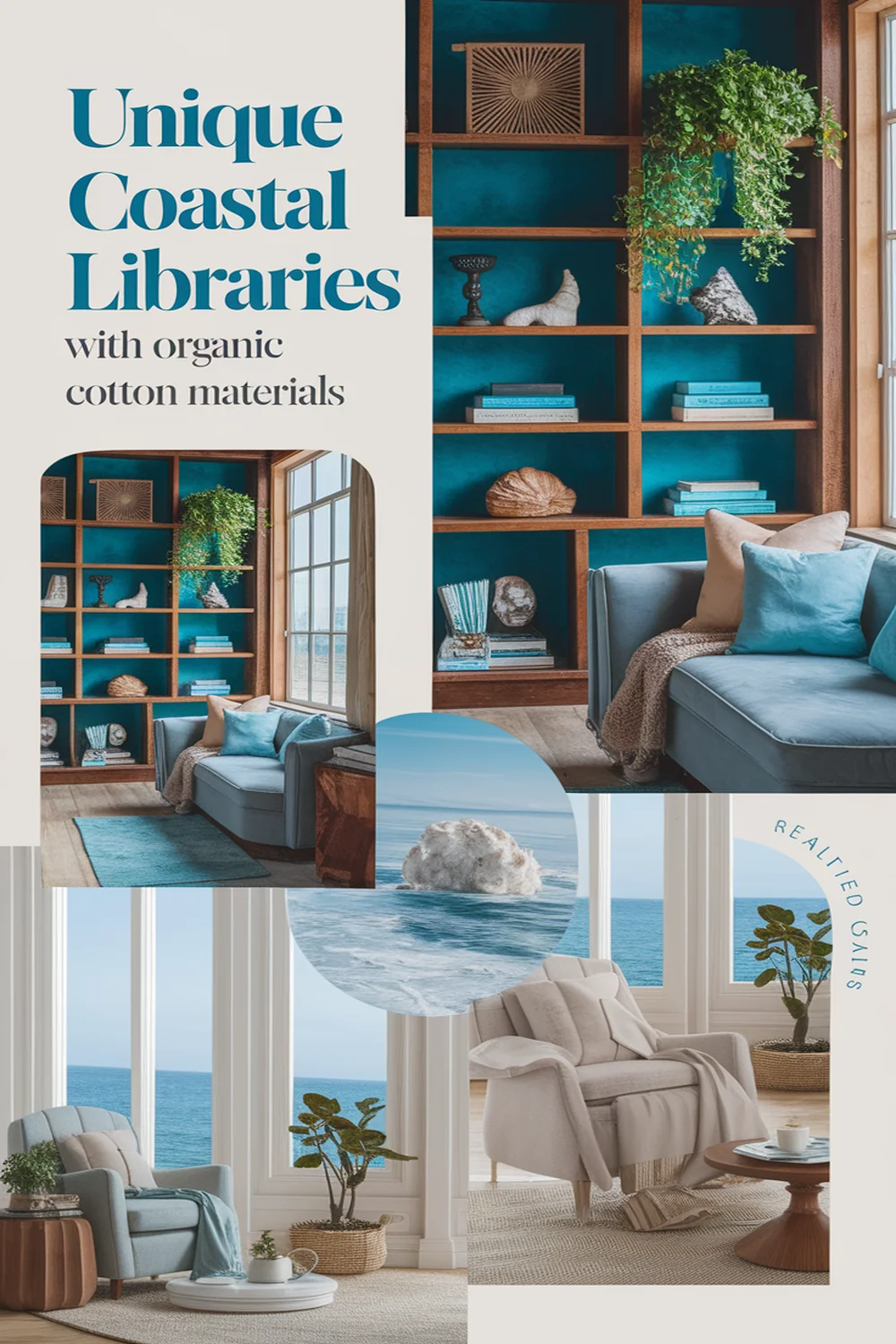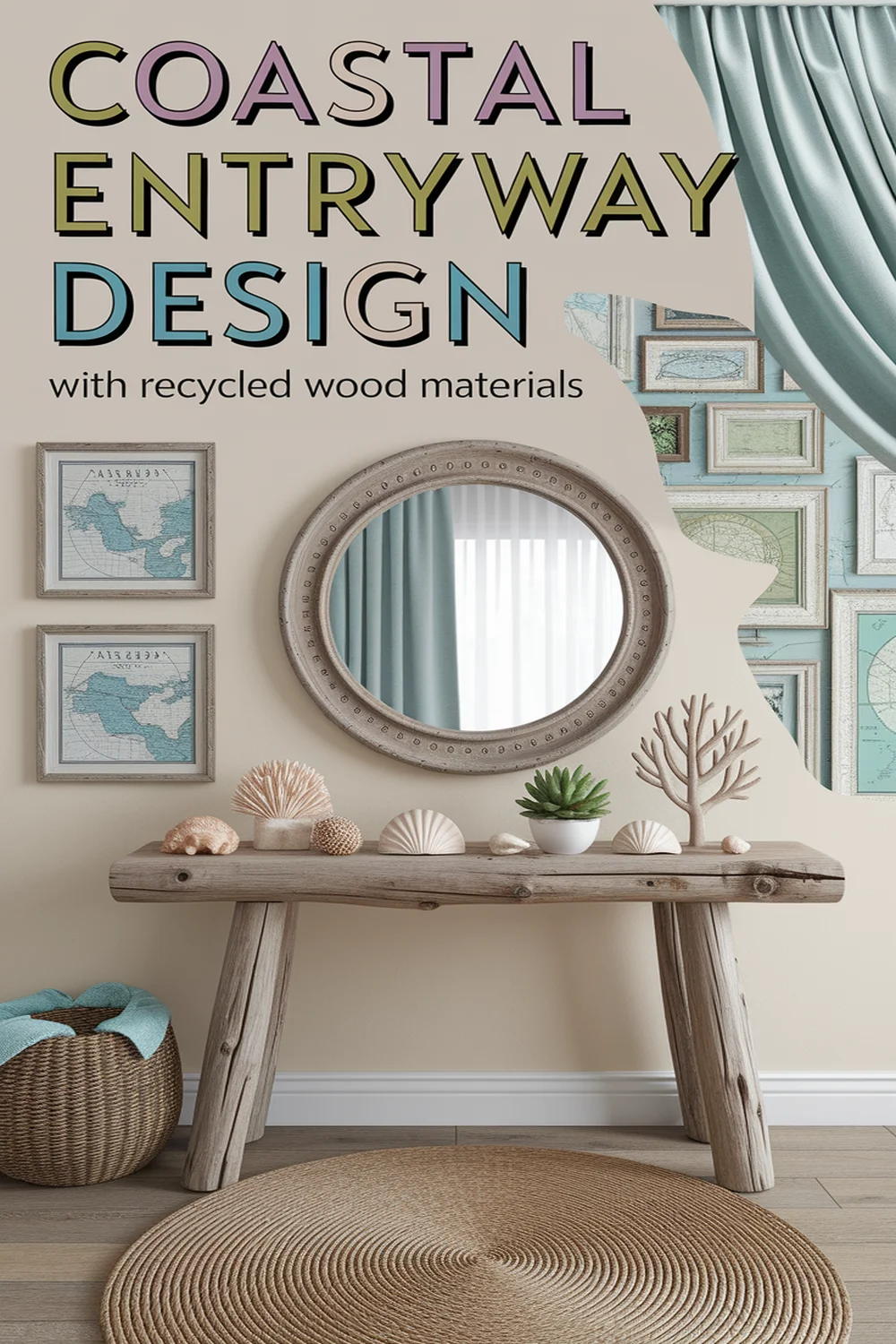This post may contain affiliate links. Please read our policy page.
Coastal libraries stand out by blending the soothing ambiance of their surroundings with the charm of organic cotton materials. I love how these soft, natural hues create a warm, inviting atmosphere. The comfy seating made from eco-friendly organic cotton makes it a true haven for visitors. Plus, eco-friendly book bags and unique artisan products enhance the experience while supporting sustainable practices. You’ll discover even more ways organic cotton enriches these libraries as we explore further.
The Aesthetic Appeal of Organic Cotton in Coastal Libraries
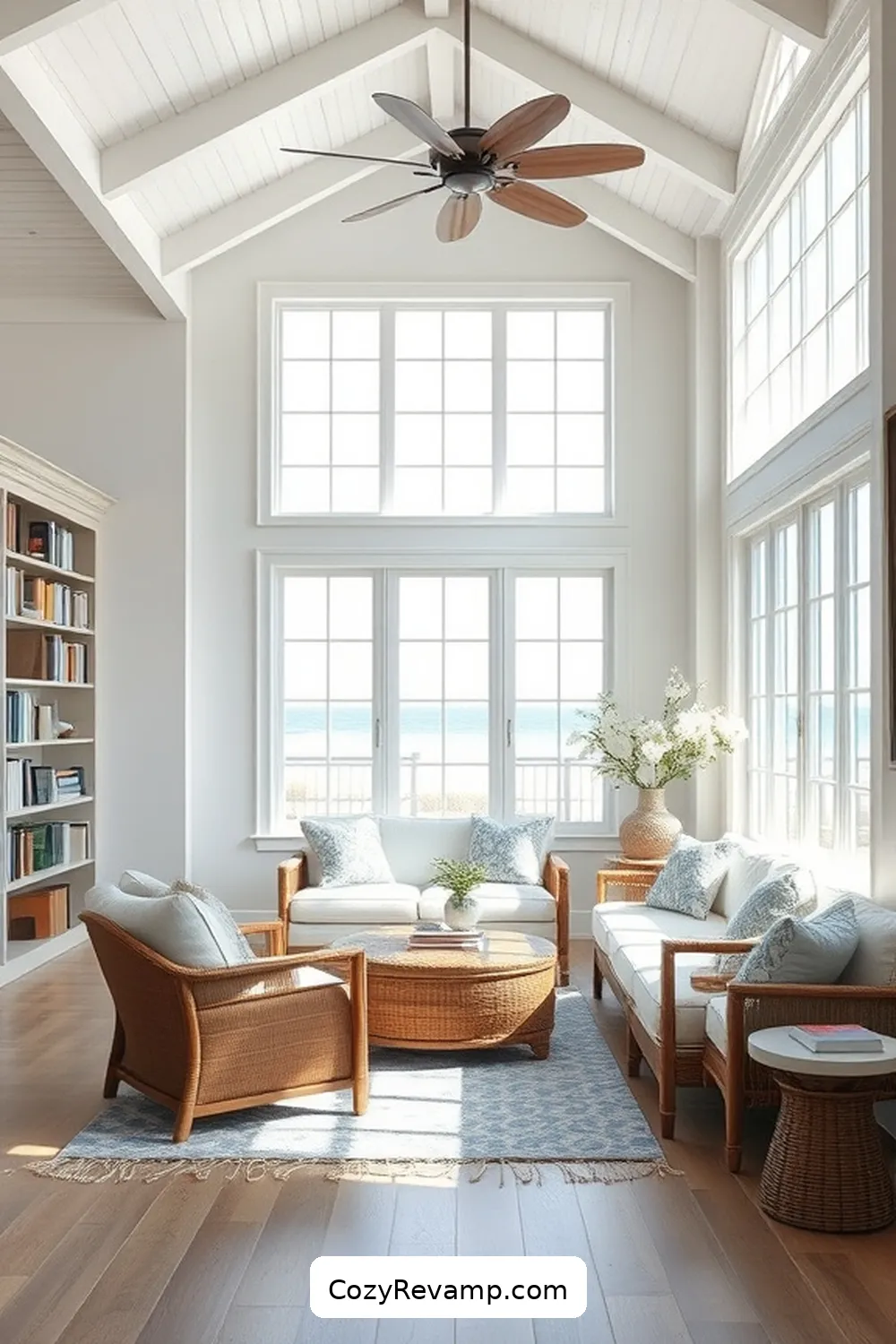
As I step into a coastal library adorned with organic cotton materials, I’m immediately struck by the soothing ambiance that envelops me. The soft, natural hues of the organic cotton create a harmonious connection with the coastal scenery outside.
I notice how the fabric’s texture adds a layer of warmth, inviting me to explore the shelves. The sustainable choice of organic cotton not only enhances the library’s aesthetic but also reflects a commitment to environmental stewardship.
I can appreciate the craftsmanship in the organic cotton furnishings—each piece is thoughtfully designed, blending elegance with functionality.
It’s revitalizing to see how these materials contribute to a serene environment, making the library a perfect retreat for readers seeking inspiration and solace amidst nature.
Recommended Items
Explore our handpicked recommendations for creating a unique coastal library with organic cotton materials!
Enhancing Comfort and Coziness With Organic Cotton Seating
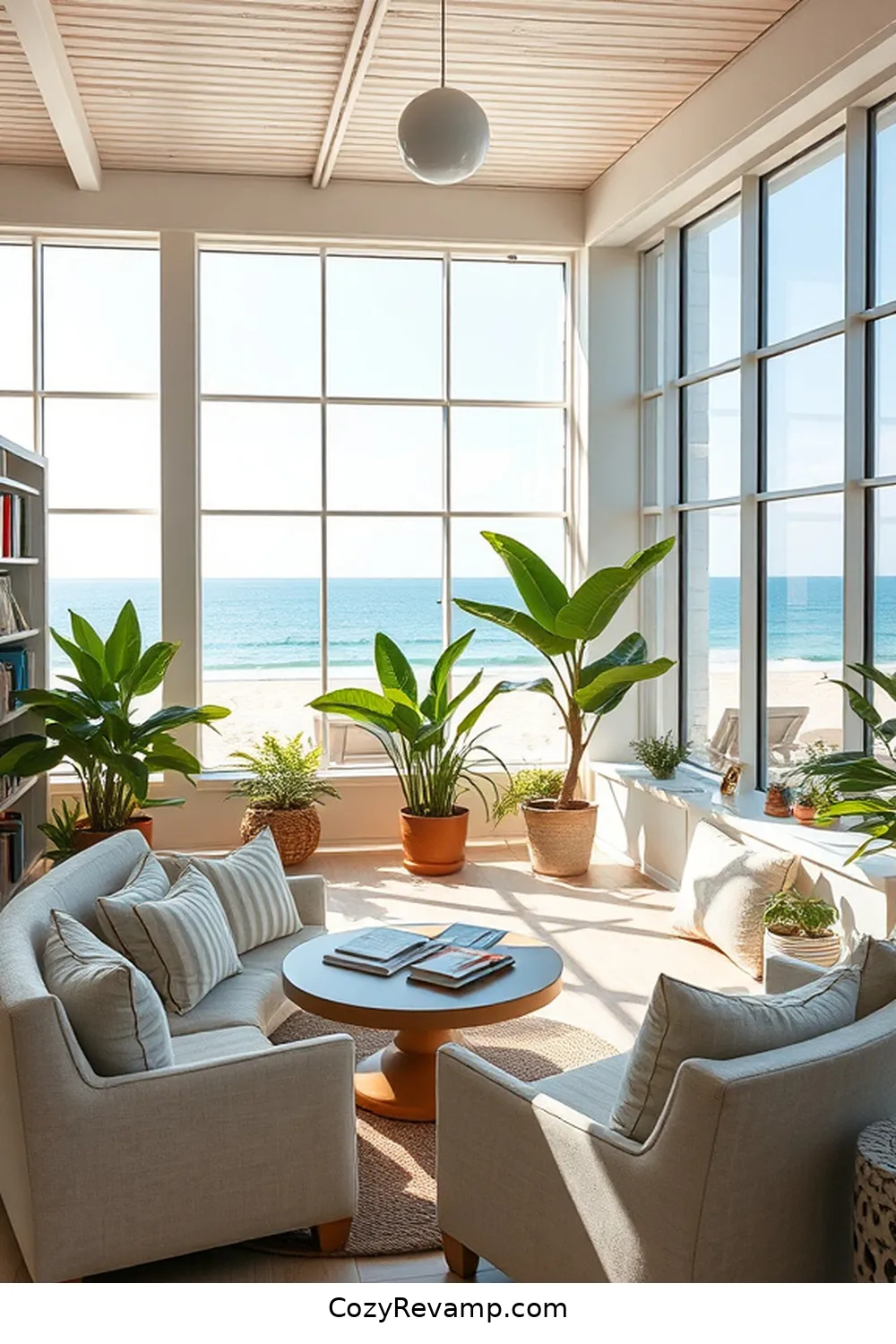
While exploring the coastal library, I can’t help but sink into the inviting organic cotton seating that perfectly blends comfort with sustainability. The plush cushions cradle me, making it easy to lose track of time as I immerse myself in a fascinating book. The organic cotton not only feels luxurious but also reflects a commitment to eco-conscious living.
Here’s a quick comparison of organic cotton seating versus traditional materials:
| Feature | Organic Cotton Seating | Traditional Seating |
|---|---|---|
| Comfort Level | High | Moderate |
| Sustainability | Eco-friendly | Often non-biodegradable |
| Allergens | Hypoallergenic | May contain allergens |
This cozy haven enhances my reading experience, making the library a delightful escape.
Task Overview for Coastal Library Decor
Eco-Friendly Book Bags: A Sustainable Choice for Library Patrons
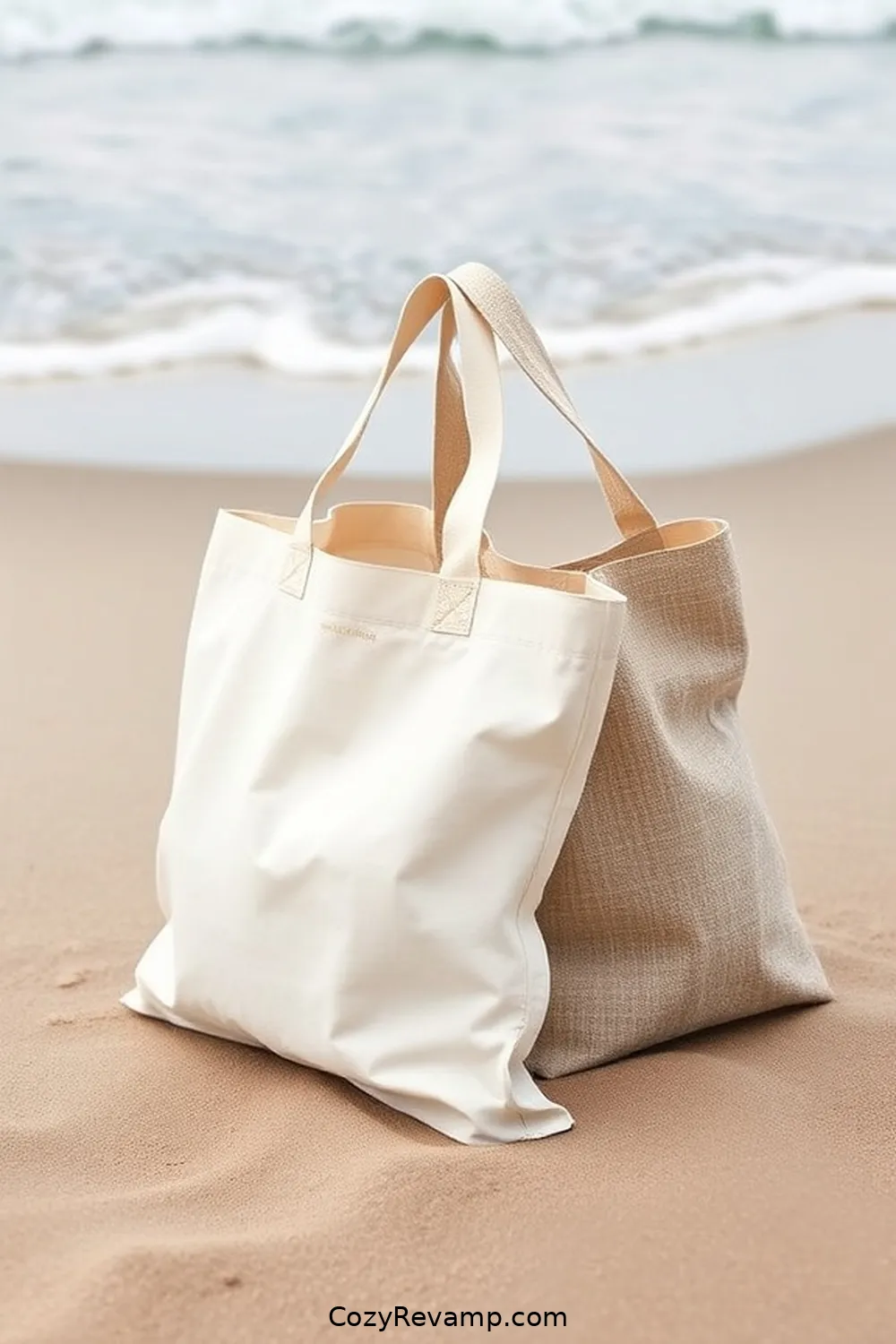
Choosing an eco-friendly book bag transforms my library visits into a more sustainable experience. I love the idea of reducing plastic waste while carrying my favorite reads.
Embracing an eco-friendly book bag makes my library visits more sustainable and enjoyable, all while reducing plastic waste.
These bags, often made from organic cotton, aren’t only durable but stylish too. When I stroll through the aisles, I feel good knowing I’m making a positive impact on the environment.
Plus, they’re spacious enough for my growing collection of books, which means I can borrow more without worrying about damage. Each time I use my eco-friendly bag, I’m reminded of the importance of sustainability.
It’s a simple choice that aligns with my values and makes every visit to the library feel more meaningful. Why not join me on this eco-conscious journey?
Supporting Local Artisans Through Organic Cotton Products
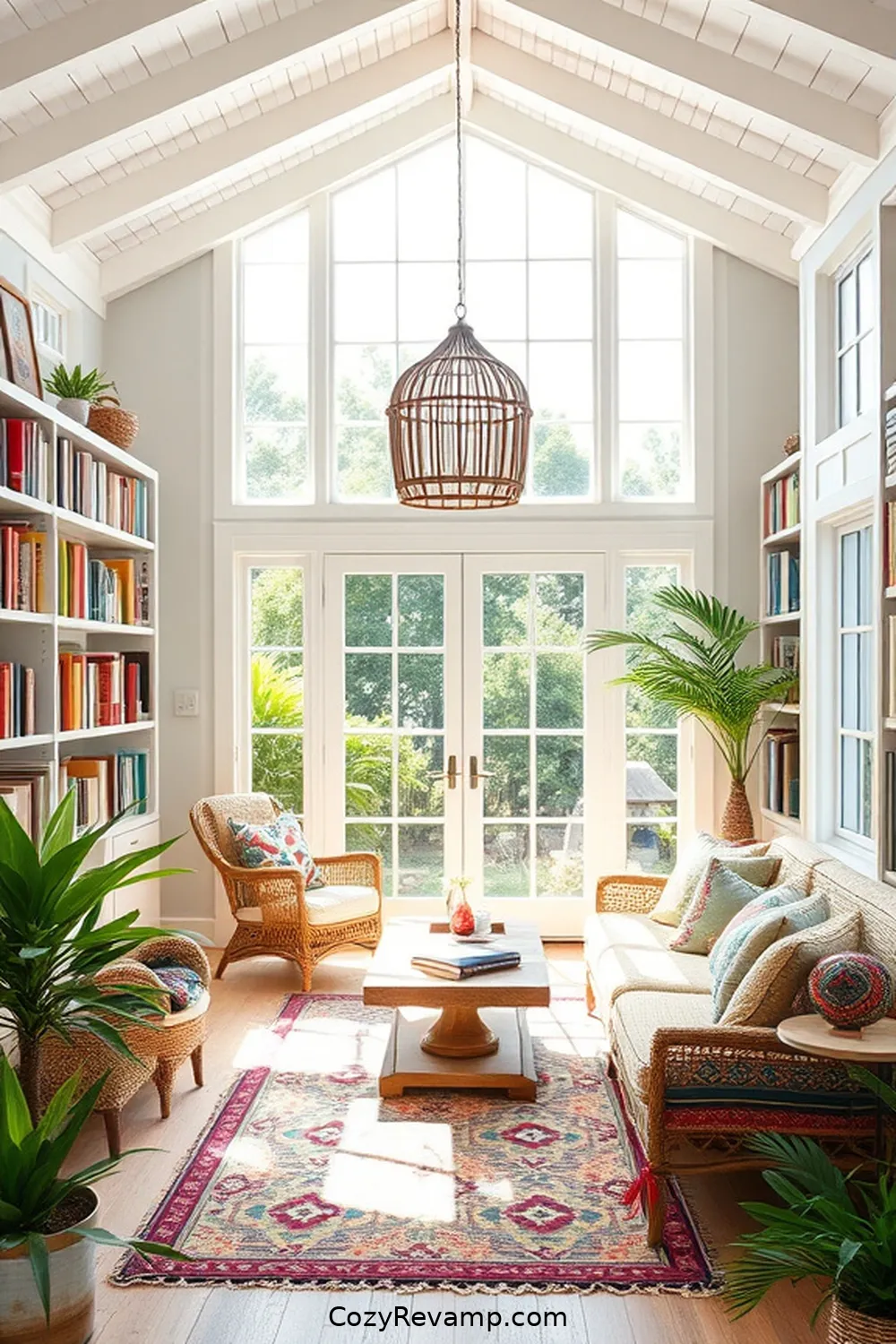
Supporting local artisans through organic cotton products not only enriches my library experience but also fosters community connections.
By showcasing handmade items, I can appreciate the craftsmanship and creativity of our local talent. Here’s why I love supporting these artisans:
- Unique Designs: Each piece tells a story, reflecting the artisan’s personal touch.
- Quality Materials: Organic cotton isn’t only eco-friendly but also durable, ensuring longevity.
- Economic Support: Purchasing these products helps sustain local economies and encourages fair trade practices.
- Community Engagement: Collaborations with artisans create events that bring us together, promoting a sense of belonging.
The Role of Organic Cotton in Promoting Environmental Awareness
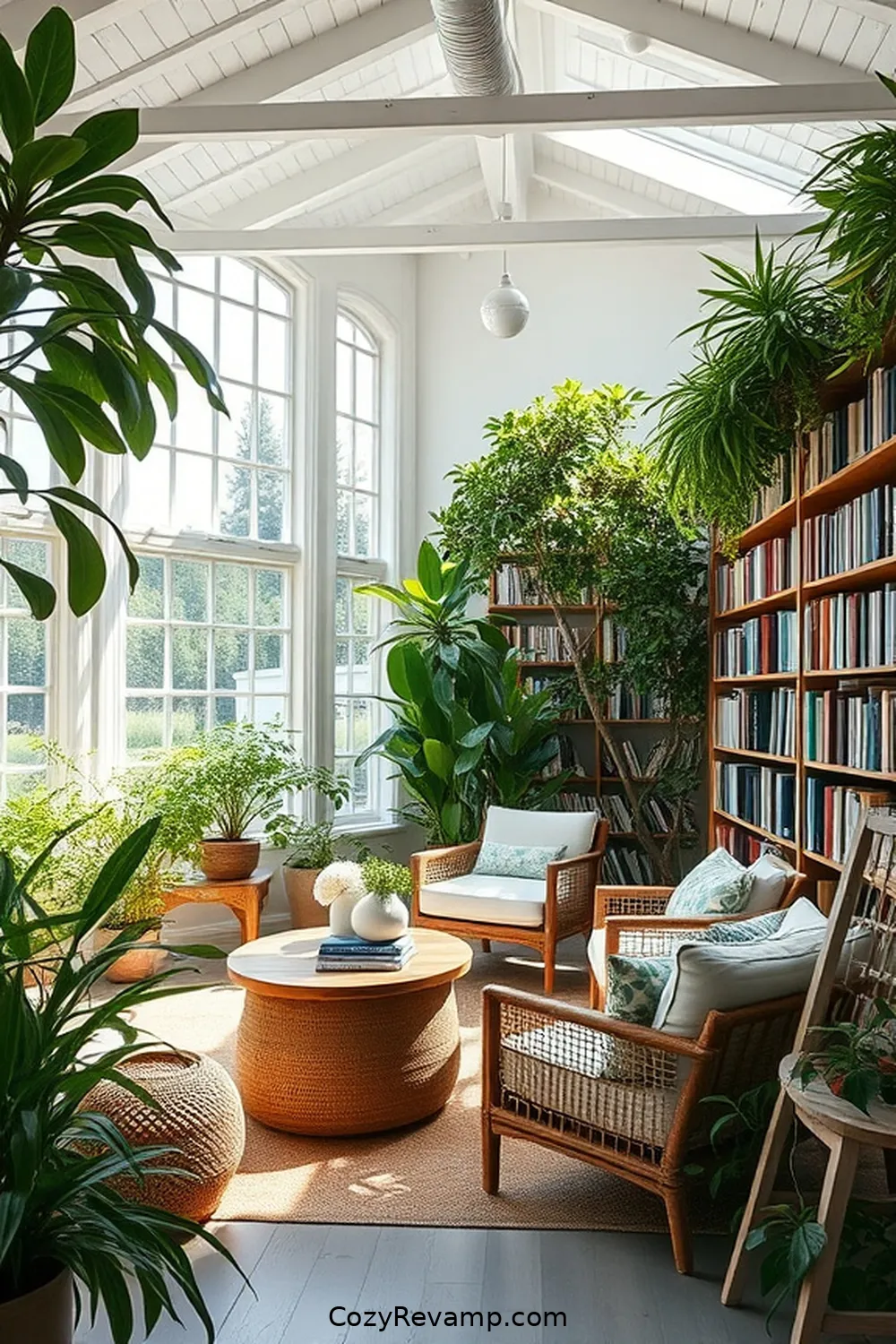
As I explore the significance of organic cotton, it becomes clear how this sustainable material plays an essential role in promoting environmental awareness. By choosing organic cotton, we’re making a statement about the importance of eco-friendly practices.
Choosing organic cotton embodies our commitment to eco-friendly practices and highlights the importance of sustainable living.
It’s grown without harmful pesticides, which means healthier soil and water for our planet. When I see organic cotton products in the library, they serve as tangible reminders of our responsibility to protect the environment.
They spark conversations about sustainable choices, encouraging others to think critically about their consumption habits. Each organic cotton item tells a story of ethical farming and community support, inspiring us to embrace a lifestyle that prioritizes our planet.
It’s a small but impactful way to foster a culture of sustainability.
Designing Spaces: How Organic Cotton Influences Library Architecture

When I think about the impact of organic cotton beyond its role in sustainability, its influence on library architecture comes to mind. The use of organic cotton materials shapes inviting, eco-friendly spaces that foster learning and community engagement.
Here’s how it contributes:
- Natural Aesthetics: The soft texture and earthy tones of organic cotton create a calming atmosphere.
- Acoustic Benefits: Cotton’s sound-absorbing properties enhance a library’s peaceful environment.
- Durability: Organic cotton withstands wear and tear, ensuring a long-lasting appeal in high-traffic areas.
- Healthier Indoor Air: Being free from harmful chemicals, organic cotton promotes better air quality for patrons and staff.
These elements come together to create a library that feels both welcoming and responsible, encouraging a love for reading and sustainability.
Community Engagement and Educational Programs on Sustainability
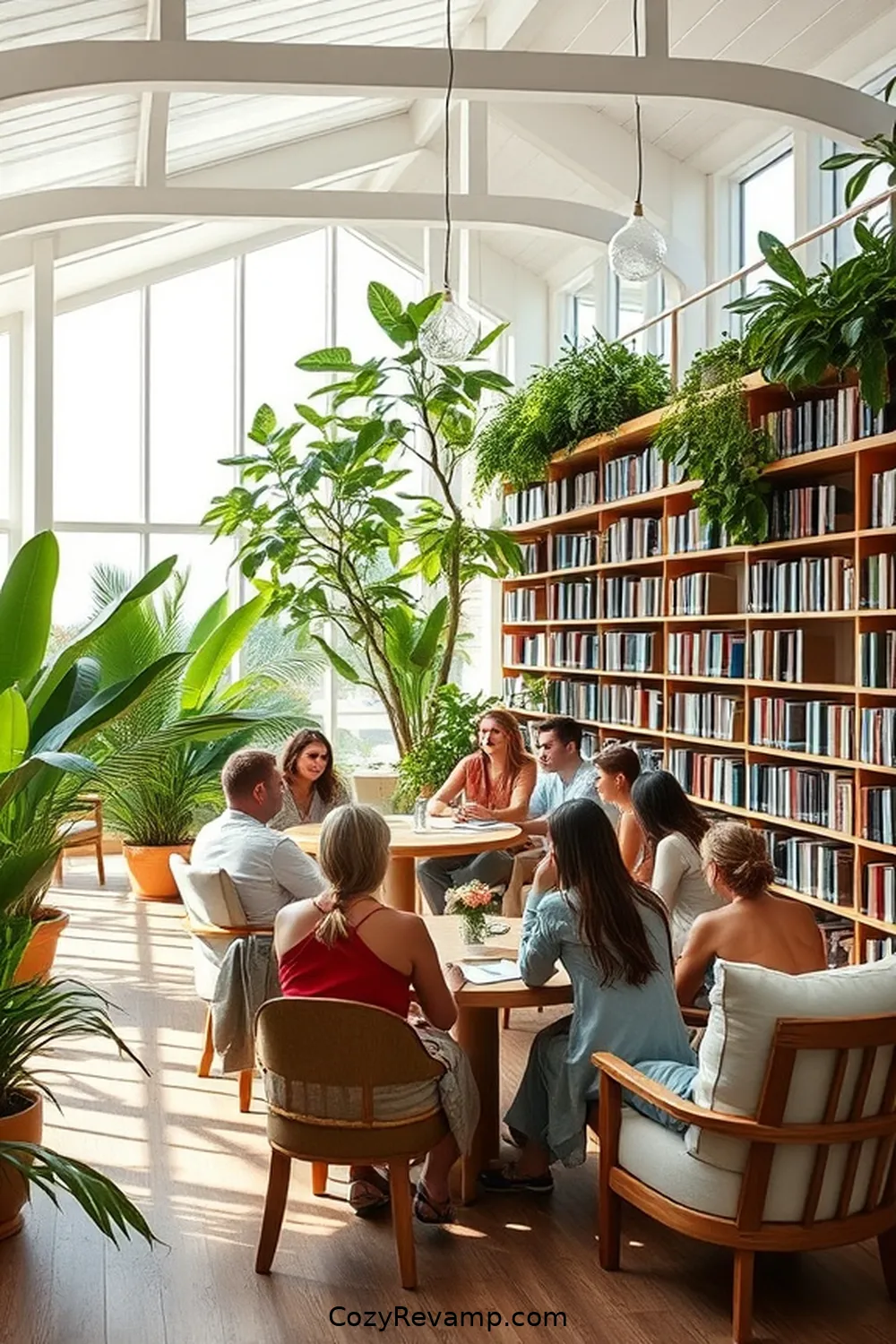
While exploring the role of libraries in fostering sustainability, I’ve found that community engagement and educational programs are essential in promoting eco-conscious practices. Coastal libraries can serve as hubs for workshops and events that connect residents with sustainable initiatives. Here’s a quick look at some engaging programs:
| Program Type | Description |
|---|---|
| Eco-Workshops | Hands-on sessions on recycling |
| Book Clubs | Discussions on sustainability topics |
| Community Clean-Ups | Organized beach and park clean-ups |
| Seed Libraries | Exchange of native plant seeds |
| Educational Talks | Guest speakers on environmental issues |
Through these initiatives, libraries not only educate but also inspire their communities to adopt greener lifestyles, reinforcing the importance of sustainability in daily life.
The Future of Coastal Libraries: Trends in Organic Cotton Usage
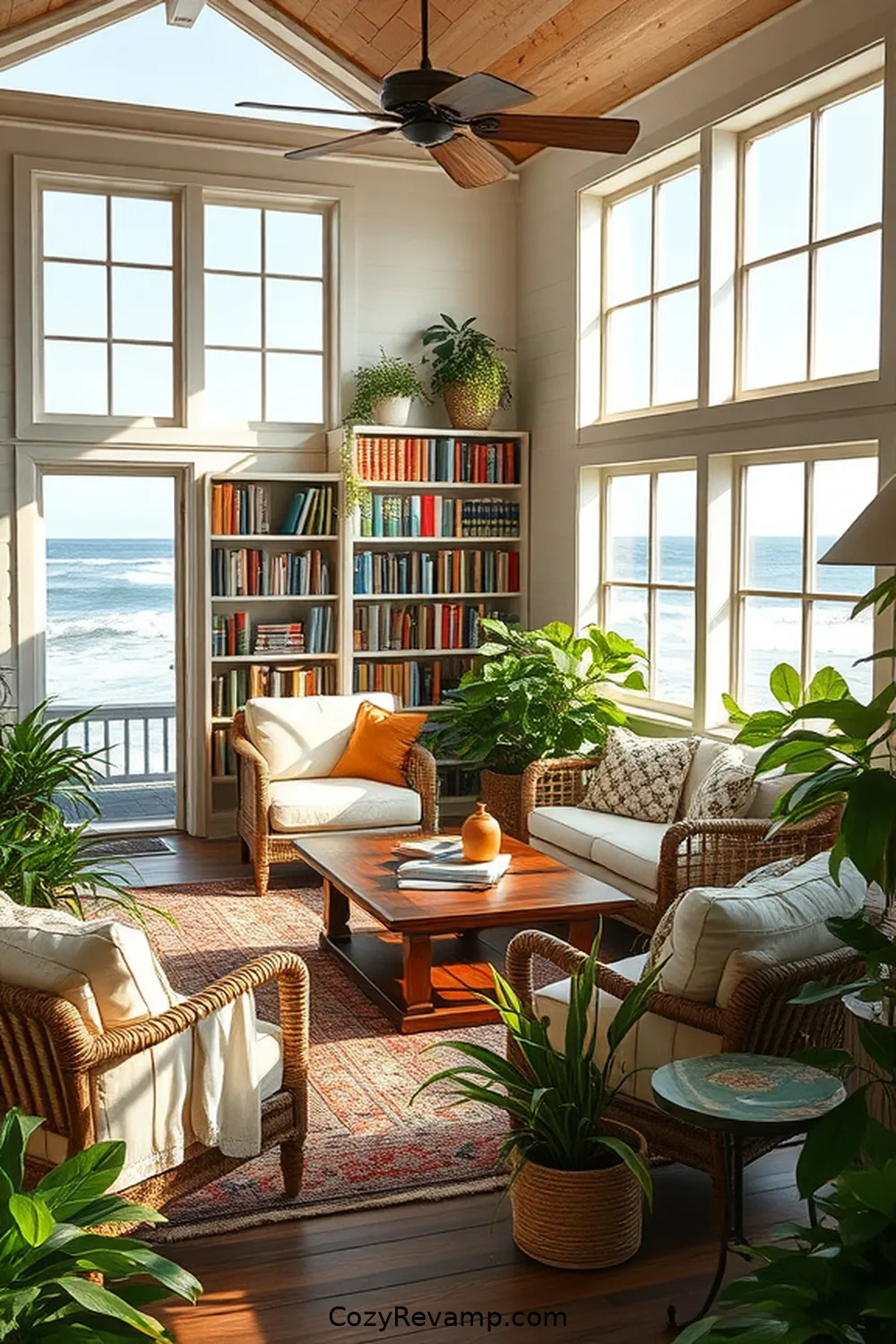
Coastal libraries are increasingly embracing the use of organic cotton materials, recognizing their potential to enhance sustainability efforts.
I find it exciting to see how these libraries are integrating organic cotton into their environments. Here are some trends I’ve noticed:
- Eco-friendly furnishings that reduce carbon footprints.
- Reusable bags for patrons, promoting sustainable practices.
- Educational programs focusing on the benefits of organic materials.
- Art installations made from organic cotton, fostering creativity.
These initiatives not only support environmental conservation but also inspire community involvement.
By prioritizing organic cotton, coastal libraries are setting a standard for sustainability in public spaces.
It’s a movement that encourages us all to rethink our choices and embrace a more eco-conscious lifestyle.

